- Home
- Christie Ridgway
An Offer He Can't Refuse Page 7
An Offer He Can't Refuse Read online
Page 7
“I…I’m not sure.”
His eyes narrowing, Stan gazed on Johnny. “You don’t know what kind of story you’re going to write?”
“Maybe about the children of mobsters,” he said off the top of his head. “You know, what it’s like for the children who try to move out of their family’s line of work.”
Stan regarded him in silence, then turned back to square up for another shot. “Salvatore had two daughters with his wife. And then there’s one in the middle, another girl, that he fathered from his mistress. All three were raised together as sisters after the mistress died.”
Johnny knew who they were. Téa, of course, her blonde half-sister, Eve, and the youngest, Joey. “Interesting family setup,” he murmured, thinking back to the night before. Interesting woman. Such a bundle of contradictions, Téa was, with her strait-laced clothes and her sometimes smart-ass mouth. Lousy in bed, the contessa had called him, a little smirk on her full lips. Then he’d touched her, feeling her velvety skin and her fluttering breath against his fingertips.
The atmosphere in the car had gone from burgeoning sexual awareness to definite sexual combustion in the space of that breath, one of those inexplicable yet unstoppable events that songwriters blamed on the moon and that scientists blamed on pheromones. Johnny didn’t know what to blame or what he was going to do about it either, even as he went half-hard just remembering it.
“Later, Salvatore was murdered.”
Stan’s comment dumped icy water all over him. “Murdered?” Johnny cleared his throat. “I thought the official verdict was that Salvatore disappeared.”
Stan gave him another sharp look. “That’s right. But if you’re in the California Mafia and you go away one day and never come back—that means you’re dead, son. Murdered.”
“You don’t know any more details than that? I don’t mean the kind that come out in court documents or police reports, but the kind that people talk about on street corners.”
Stan pulled his fishing hat farther down over his eyes. “Those are old rumors you’re asking about.”
Sixteen-year-old rumors. “Maybe Salvatore’s death was accidental. Did anyone ever look into that? Consider that?”
“A body has never been found, neither here or in Las Vegas. That’s the last place Salvatore was seen, gambling at a casino.”
“So a hundred things could have happened to him then,” Johnny pointed out. “A car accident, a heart attack, a…a…scorpion bite. It seems strange, don’t you think, that everyone jumped to the conclusion that it was murder?”
“Not when a body’s missing and the Mafia’s involved. In that world, job advancement means getting rid of the man on the ladder one rung above yours—or hiring someone else to get rid of him for you. The way I remember it, the story was that an enterprising young turk decided to rub out Sal Caruso and paid some hit man to do it—he was the last person Salvatore was seen with in Las Vegas. The mob boss’s murder started a war on the streets and even more lives were lost until Cosimo got California’s Italian underworld back under his control.”
Johnny grabbed up his wire basket and tossed the contents to the ground. Golf balls rolled around his feet and he teed them up one after the other, smashing the hell out of them because he couldn’t obliterate that same story he’d first heard so long ago.
When the balls were gone, he looked up to find Stan watching him with a trace of alarm. “You gotta take it easy, son. It requires a lot of energy to live a good, long life so you shouldn’t use it all up in one day.”
“Yeah?” Johnny muttered. “Maybe I’m not so sure about a good, long life ahead.” He wasn’t sure he wanted one, if it would never include the answers he needed to get a decent night’s sleep.
“You might be right about that if you decide to contact them.”
“Contact who?” Johnny asked.
“Those Caruso girls,” Stan replied. “Cosimo is very protective of those three.”
Which got Johnny thinking about Téa again. For some reason, he was starting to feel a little protective of the contessa himself. She was smart, she was funny, she was sexy in a half-exotic, half-innocent way he itched to explore.
He remembered the sleek feel of her lips against the tip of his finger and the way her perfume had bloomed in the car like the scent of hot flowers when he’d touched her. She turned him on. She tempted him. To put it bluntly, he wanted to take her to bed.
That was the hell of it, though, because his Main Street Magee values were starting to nag at him again. While he might not be a man who enjoyed getting close to people, he’d never considered himself a user before either. A player perhaps, but not a user.
And besides sex, he wanted to use Téa Caruso for information.
Jesus, the one he should be protecting her from was himself.
And he could. He could go away from Palm Springs. Go back to Vegas or to somewhere else. Delving into the past was all so damn complicated to begin with and the temptation of Téa would only make it more so. Perhaps the best thing to do now was to sell the house and hope that time would rebury the memories.
It hadn’t happened in nine months and he didn’t think it would happen in another nineteen, or twenty-nine, but he could hope.
He drew the last of his golf balls toward the rubber tee. Fine. As soon as he was done here, he’d drop by Téa’s office, he decided. Unless a lightning bolt hit before he got out the words, he was going to tell her the design job was off.
He might never know the complete truth, but then she’d never find out that the man rumored to have rubbed out her father was his. And that the family who ordered the hit that killed Johnny’s father in retaliation had been hers.
Eight
“Too Close for Comfort”
Johnny Mathis
Wonderful, Wonderful (1957)
There was a tall and wide white box on Téa’s office doorstep. She dropped her briefcase and purse to pick it up, and the slick cardboard felt cool to the touch—proof that it had recently spent time in refrigeration. “Celebrity Florist” was embossed in silver across the lid.
Though the office was still locked up because Téa’s assistant was coming in late that day, a delivery person wouldn’t have just dumped the package on a doorstep, she thought, glancing around. Even at ten A.M., the morning was too warm to leave flowers unattended for long.
And who would have sent her flowers anyway? If “Caruso” hadn’t been inked in tiny letters on one corner, she would have already been walking them toward the insurance company in the next office over. The receptionist there had caught the fancy of a seventy-something taxidermist from Indian Wells. Last week he’d sent her a bouquet of helium balloons anchored by a stuffed coyote. A real stuffed coyote.
Both she and Rachele had heard the young woman’s screech of repulsion and come running.
But the only man Téa had had recent contact with was Johnny Magee.
Beneath her oatmeal-colored blouse and skirt her skin prickled, in every place it had no business prickling. Because no matter what had happened last night in her car, no matter what had been said—both real and imagined—he was supposed to be business. Just business.
Yet she could remember that light touch of his fingertips to her face as if they were still there. She could still taste him too, male and salty, on her tongue. Her mind flashed back to that lip-to-lipstick sip that Eve’s latest had taken from her drink, and from there it was only a short mental hop to Johnny Magee’s mouth. Wide, firm lips made only more masculine by their slight sandpaper edging of golden whiskers.
She wondered what those would taste like against her tongue and her skin reacted again with another round of unwelcome goose bumps.
If he had sent her flowers, then what?
Her fingers tightened on the chilled box. Until she found out for certain, of course, she couldn’t make a decision. And though it was girlish and silly of her, she knew, her pulse thump-thumped-thumped in her ears as she used one fingernail to pry open the
box’s lid. It sprang free.
Cushioning white-and-glitter tissue paper. Glass bowl with an artful arrangement of a dozen apricot roses in water colored a matching hue. A clear plastic prong speared a white card bearing three simple words in distinctive, left-leaning handwriting. Ritorni, per favore.
Please come back.
Her fingers went boneless. The box slid out of her grasp. Glass shattered against the pavement at the same moment that she heard her name called from somewhere behind her.
“Téa?” Johnny’s voice. “Jesus Christ, you look like you saw a ghost. Are you all right?”
A hard hand grabbed her elbow and swung her around. She continued to stare down at the ruined box, the broken glass, the scattered roses. The colored water had splashed across her shiny cream-colored pumps and over her stockinged ankles. Orangish droplets dotted the knee-length hemline of her straight skirt.
Johnny took hold of her chin and jerked it up so he could study her face. “What the hell’s the matter?”
She wondered why it was that he kept catching her at her worst. Was it mere coincidence or some unique superpower—meet Johnny Magee, MakeHerMessy Man—of his own that destroyed the calm and controlled exterior she presented to the rest of the world?
“Téa? The way you dropped those flowers, I thought they were about to bite. What’s going on?”
She hoped she managed a half-smile. “That ghost you mentioned, I guess.”
Frowning, he glanced down at her feet. “Who are those from? Is some old boyfriend bothering you?”
“No.” But he was going to think she was nuts if she didn’t elaborate. “My father used to bring home apricot roses.”
From the start of their marriage, her father bought her mother a dozen apricot roses every Friday afternoon. Week-in, week-out. Month-in, month-out. Year-in, year-out. As far as Téa knew, he’d brought roses even during the time he’d kept the mistress he couldn’t deny once he’d brought home something else—the daughter he’d had with her. And for as long as Téa could remember, her father would slip one of those Friday roses free of its cellophane wrapping to press the thornless stem into her own small plump hand.
“Una piccola ricompensa,” he’d say. A little reward.
A little reward for her little crimes.
Johnny was still looking down at her as if she was unhinged, she realized, and supposed her explanation left something to be desired. “My father’s dead,” she offered.
The grip of his hand loosened, but didn’t go away. “I’m sorry.”
“The roses…” and those words in Italian, please come back—her grandfather’s words, as it was he who had sent the flowers, just more of that emotional pressure he was exerting—had reminded her too much of the prayers she’d broadcast in a fever of grief after her father’s disappearance. Prayers she’d never stopped sending until her father’s crew and then the FBI had turned their house upside down in a fruitless search for the book. “The roses reminded me of him.”
Johnny’s expression only hardened, making her wonder if she’d struck a nerve. Without thinking, she voiced the question. “Johnny? Is your father okay?”
“My father?” He dropped her arm, stepped back. Beneath his heel, glass crunched, but he didn’t seem to notice.
“Is there…” she hesitated, trying to come up with a way to put it. “Is there an older Mr. Magee?”
The tension drained from his body and the beginnings of a smile nudged at the corners of his mouth. “Phineas Magee, head of the Physics Department at Central Washington University, doesn’t care to think of himself as ‘older.’”
“I see,” she said, bending down to tend to the ruined flower arrangement. Wouldn’t you know that Johnny Magee’s Nautica-model good looks would come by way of a brainy prof named Phineas? Some people got more than their fair share of that All-American normalcy she’d wished for most of her life. “He sounds like quite the father.”
“Yeah.”
From the pavement, Téa plucked a couple of roses in one hand and a large shard of the broken vase in the other.
“And what about yours?” Johnny continued. “Was he quite the father as well? Do you miss him?”
Do you miss him? The question stabbed her and she sucked in a breath against the pain. Of course she missed him, she thought, her fingers tightening into a fist. Though Téa supposed every woman had a story about a man she’d loved and lost, it felt particularly devastating when the one that got away was her father.
“Jesus! Téa!” Johnny dropped to a crouch beside her and grabbed one of her hands in both of his. He drew it toward him and pried open her fingers.
In surprise, Téa noted the blood dripping between her knuckles. It splattered against his pants and crimson drops joined the orange dots on her skirt as he flicked away the piece of broken glass she’d inadvertently clutched. With one of his hands cradling her injured one, he pressed his handkerchief against the shallow cut on her palm and pressed hard.
She winced.
He glanced over, then frowned. “You’re pale again.” Without letting up the pressure on her wound, he slipped an arm around her shoulders and drew her back so they both could sit on the curb of the small planter box lining the short front walk to her office door.
“I’m okay,” she protested.
He hitched her closer to him, and the brush of his hard, warm body against hers made her shudder.
“Yeah, right,” he said. “You feel cold and you’re shivering. You’re just peachy.”
What was she supposed to do, tell him it was the sensation of his body aligned with hers and not the blood loss that was causing her quivering skin? That wouldn’t be businesslike now, would it?
Looking down at the stains on their clothes and the broken mess on the pavement, she groaned and dropped her forehead to her free hand. “Though I’m fighting a losing battle with that good impression anyway, aren’t I?”
“What?”
“I’ve not exactly been a model of poise the past couple of days.” From the splash in the pond to the splashes of blood on his slacks, it had been one departure after another from her usual it’s-all-under-control and appearances-are-everything self.
“You don’t have to pretend with me.”
She lifted her head to look at him. “You don’t get it. I don’t have to pretend to present an unruffled image. Usually, anyway. That’s who I am, what I am. A calm, unruffled professional.”
A smile entered Johnny’s eyes like sunlight glinting on sea-blue waves. Heat sizzled through her again. He really had no right to be so beautiful—particularly her personal-hot-button beautiful that had always sent her scurrying for Pop-Tarts or peanut butter cups to subjugate her unrequited cravings.
She frowned at him, because she wasn’t going to melt, by God. “You don’t bring out the best in me, that’s what I think.”
Now his mouth smiled too. His fingers lifted from the handkerchief to run once again along her warm cheek. “I might beg to differ.”
So she melted. So sue her. Because the living embodiment of her every teenage fantasy was looking at her like she used to look at packages of Entenmann’s coffee cake.
“I like this you,” Johnny said.
“You do?” It came out breathless, girly. Good Lord. But who would blame her when he was leaning closer and wrapping her in that scent of his that smelled like clean wind and letterman jackets?
“Yeah, I do.” His sexy voice hoarsened, darkened, was that by-the-fire seductive whisper that told the story of naked gypsy girls and wild, passionate dances. His fingertips slid against her cheek again. “And you’re not so cold anymore.”
More breathlessness. “I’m burning.”
His palm cupped her face, his fingertips grazing the ticklish skin behind her ear. “I was going to resist this,” he said, with a little frown. “I was going to resist you.”
She gulped a breath and the top button of her blouse popped open. There was a tug on the barrette at her nape, and then he gripped
the freed mass of her hair with his fist and tilted her face to his.
There it was, his mouth, his lips, waiting for her like the last donut in the box or the final French fry on the plate. And willpower, apparently, evaporated in this kind of heat.
He leaned closer and she met him halfway.
It started smooth and warm. Gentle and civilized. Then he touched her bottom lip with his tongue, a polite request for permission, and she responded by opening her mouth. She had to taste him, didn’t she?
Except that meant he tasted her.
His tongue moved inside her mouth, as strong and sure as he was, and desire cracked like a whip through her body. His fingers tightened in her hair and she arched closer to him, wanting more of everything and anything he had to offer. His mouth moved over hers, his tongue played with hers. She pressed against his chest and had the sudden impulse, no need, to get naked.
Only then did the tiny hairs on her skin spring high in belated warning.
She pushed her hand between them and broke free. “What was that?” she demanded. It wasn’t a kiss, she decided, aware of her unruly hair, her unbuttoned blouse, the morning air cool on her wet lips. It was some sort of locker-room spell handed down from athlete to athlete to ensnare women who wanted to stay well clear of wanton passion. “What was that?”
“Lightning bolt,” he murmured, shaking his head.
“Mistake.”
Johnny raised dark blond eyebrows. Even the ends of his eyebrow hairs were tipped with gold. “You’re sure about that?”
“Of course I’m sure. It’s the job I’m looking for, Johnny.” Her business, her work, the Caruso name that she wanted so much to make over would be here long after the fizzle and pop of one spectacular kiss—not to mention the man—was gone. “I don’t want to ruin that.”
He froze. “The job.”
“That’s why you stopped by, isn’t it? To discuss the job? We left that unfinished last night.”
There was a pause, then he nodded. “You’re right, there’s a lot unfinished around here. A lot unfinished between us, too.” He stood to pace away from her, running his fingers through his hair.

 ANTE UP (7-Stud Club Book 3)
ANTE UP (7-Stud Club Book 3) Bachelor Boss
Bachelor Boss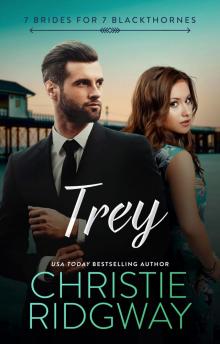 Trey
Trey Almost Paradise (Book 4)
Almost Paradise (Book 4) ALL IN (7-Stud Club Book 1)
ALL IN (7-Stud Club Book 1) My Quickie Wedding (Heartbreak Hotel Book 3)
My Quickie Wedding (Heartbreak Hotel Book 3) The Seduction (Billionaire's Beach Book 5)
The Seduction (Billionaire's Beach Book 5)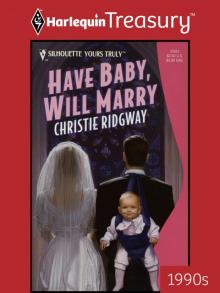 Have Baby, Will Marry
Have Baby, Will Marry Bungalow Nights (Beach House No. 9)
Bungalow Nights (Beach House No. 9) Almost Always AMAZON
Almost Always AMAZON Zane (7 Brides for 7 Soldiers Book 3)
Zane (7 Brides for 7 Soldiers Book 3) Wishful Sinful (Rock Royalty Book 5)
Wishful Sinful (Rock Royalty Book 5) SLOW PLAY (7-Stud Club Book 4)
SLOW PLAY (7-Stud Club Book 4)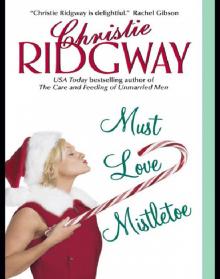 Must Love Mistletoe
Must Love Mistletoe Keep On Loving you
Keep On Loving you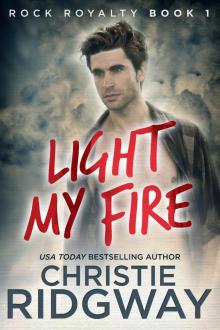 Light My Fire
Light My Fire Touch Me
Touch Me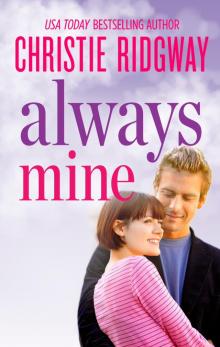 Always Mine
Always Mine Take Me Tender
Take Me Tender IN LOVE WITH HER BOSS
IN LOVE WITH HER BOSS Not Just the Nanny
Not Just the Nanny Who Do You Love (Rock Royalty Book 7)
Who Do You Love (Rock Royalty Book 7) Our Last First Kiss KOBO
Our Last First Kiss KOBO Can't Hurry Love
Can't Hurry Love Crush on You
Crush on You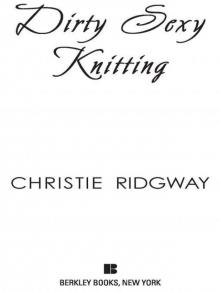 Dirty Sexy Knitting
Dirty Sexy Knitting Almost Wonderful
Almost Wonderful Beach House No. 9
Beach House No. 9 Wild Child (Rock Royalty #6)
Wild Child (Rock Royalty #6)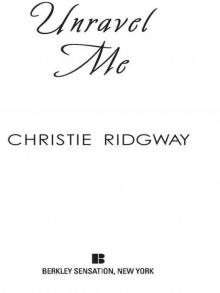 Unravel Me
Unravel Me Make Me Lose Control
Make Me Lose Control Me and Mr. Jones
Me and Mr. Jones Almost Always_Book 2
Almost Always_Book 2 Love Her Madly
Love Her Madly The Scandal (Billionaire's Beach Book 4)
The Scandal (Billionaire's Beach Book 4)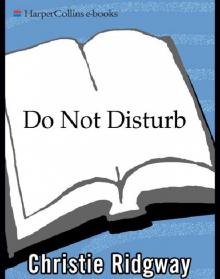 Do Not Disturb
Do Not Disturb Not Another New Year's
Not Another New Year's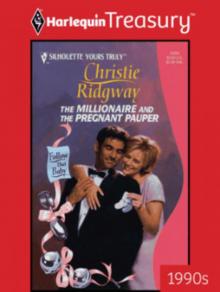 The Millionaire and the Pregnant Pauper
The Millionaire and the Pregnant Pauper The Secret (Billionaire's Beach Book 6)
The Secret (Billionaire's Beach Book 6) Beach House Beginnings
Beach House Beginnings RUNAWAY
RUNAWAY Take Me Forever (Billionaire's Beach Book 2)
Take Me Forever (Billionaire's Beach Book 2)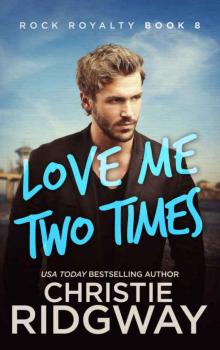 Love Me Two Times (Rock Royalty Book 8)
Love Me Two Times (Rock Royalty Book 8)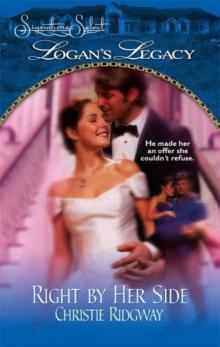 Right by Her Side
Right by Her Side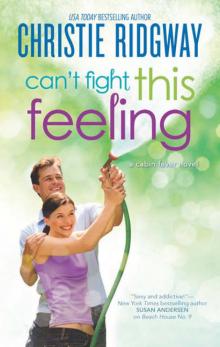 Can't Fight This Feeling (Cabin Fever)
Can't Fight This Feeling (Cabin Fever)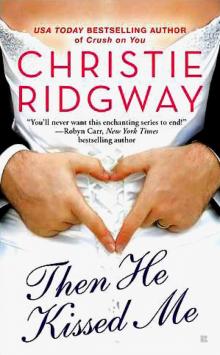 Then He Kissed Me
Then He Kissed Me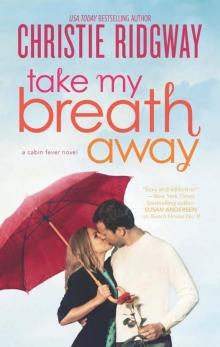 Take My Breath Away
Take My Breath Away Knox KOBO
Knox KOBO I Still Do 02 - Runaway Bride Returns!
I Still Do 02 - Runaway Bride Returns!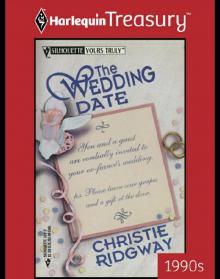 The Wedding Date
The Wedding Date THIS PERFECT KISS
THIS PERFECT KISS Me and Mr. Jones (Heartbreak Hotel Book 2)
Me and Mr. Jones (Heartbreak Hotel Book 2)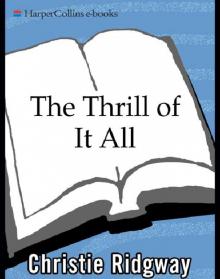 The Thrill of It All
The Thrill of It All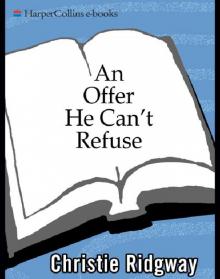 An Offer He Can't Refuse
An Offer He Can't Refuse The Love Shack
The Love Shack Runaway Bride Returns!
Runaway Bride Returns! Not Another New Year's (Holiday Duet Book 2)
Not Another New Year's (Holiday Duet Book 2) I Still Do
I Still Do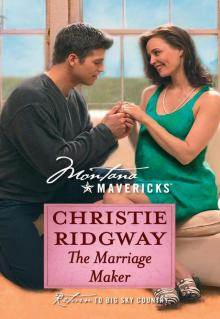 The Marriage Maker
The Marriage Maker